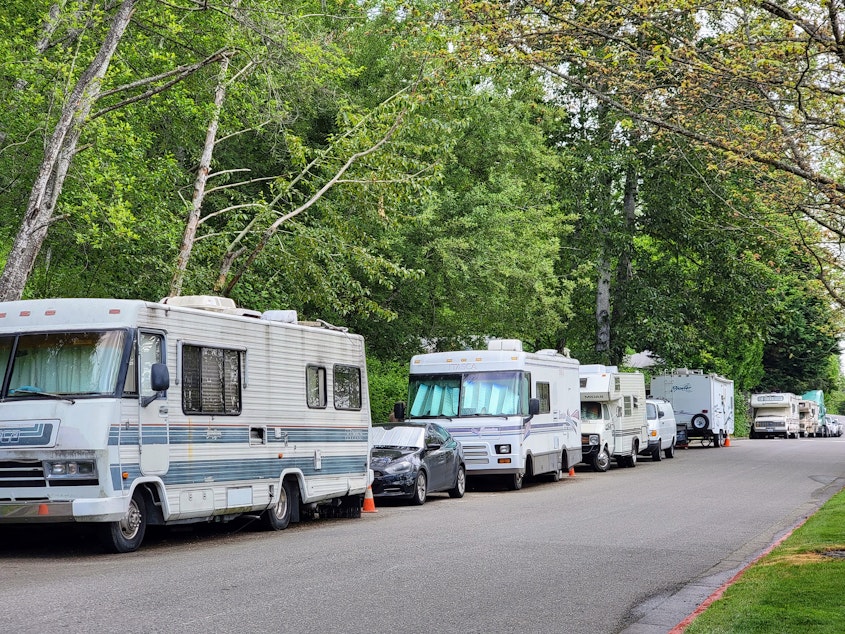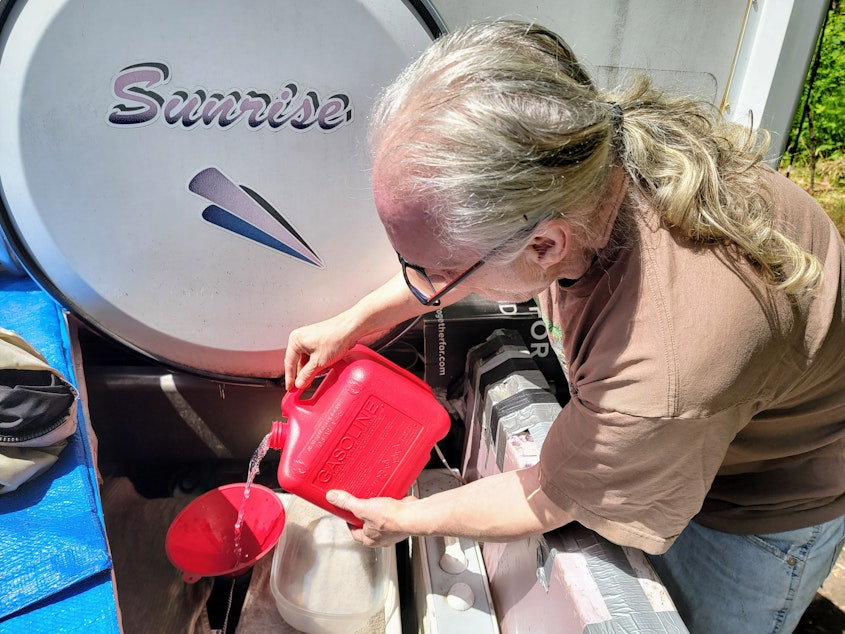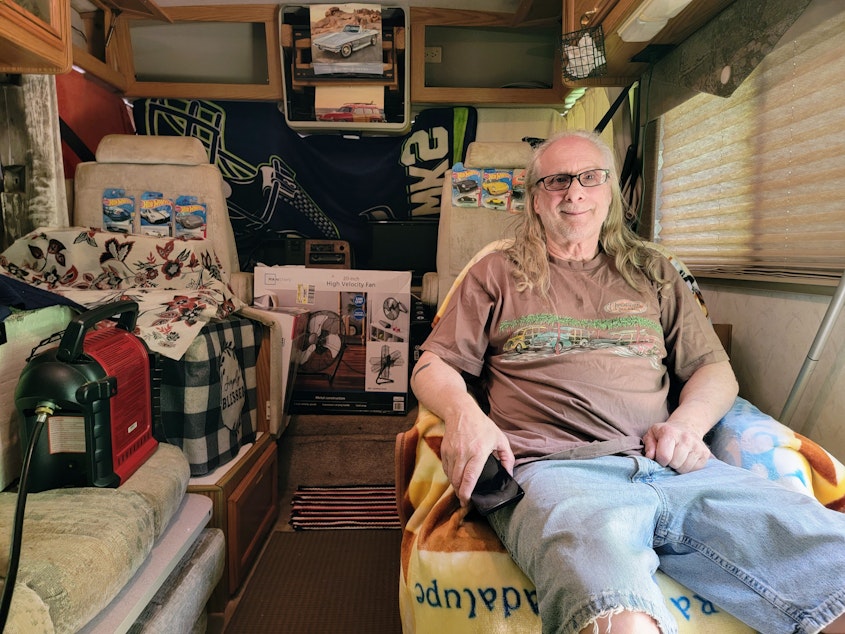Unhoused and out of sight on King County's Eastside

Some people experiencing homelessness in King County often try to stay hidden to avoid dealing with police. Outreach workers say that also means these people aren't being connected to support services.
It’s hot and sunny around Seattle, and Keith Roberts needs to get the AC in his RV running. To do that he first has to fill up a generator that sits behind the 30-foot long motorhome. The generator is a big one and holds over five gallons of gas.
“I fill this thing all the way up to the top, I mean as far as I can,” Roberts says holding a red, plastic gas can. “This will get me by until tomorrow.”
Roberts’ RV is parked on the side of a road in Kirkland. His is near the front of a long line of cars and at least eight other RVs that day.
But you’d probably never see these vehicles if you were driving around Kirkland.
That’s because Roberts and the others are parked on a back road in a commercial area, behind some car lots, office buildings, and a daycare.
Sponsored

The point of this spot, he says, is to not draw anyone's attention.
“We got a daycare down there,” he says. "So we know we're good here because if we weren't, we wouldn't be here at all, you know what I'm saying? Because that lady — she always complained, cops come here all the time."
Keeping a low profile doesn't always happen, though. Among the people living there, Roberts has been there the longest and says he's seen a lot in that time.
"One guy — I thought it was a couple of winters ago — his RV caught on fire. That was pretty bad," he says while pointing to the end of the line of RVs. “And we had another guy who had a little trailer. He did something, he caught on fire. I mean like third degree burns and stuff."
Sponsored
Since then, though, the group tries to stay quiet, while making this stretch of road their home. One of Roberts' neighbors has a leaf blower they use to keep their street tidy. Roberts is also setting up a little garden next to his RV. He recently lined the edges with small, solar-powered lights.
"These I got these at the dollar store,” he says. “These I got at Fred Meyers because they stay on all the time. So at nighttime they all brighten up.”
He also shows off a wire bird feeder in one corner of the garden.
Rows of RVs like this on the Eastside are almost always on a quiet side street. But staying out of sight to avoid police means people living in vehicles can also be hard to find for outreach workers — people like Tina Lewis, program Manager for the Salvation Army Street Level Ministries.
"Of course they want to be in the backend,” Lewis says. “Not in the front because when you're in the front, that's when everybody sees it. That's when the calls come in, that's when the complaints come in."
Sponsored
Complaints can lead to police showing up, which sometimes means people have to pack up and move.
"But then you have the community of people that live in those houses and they say, ‘No, there's no there's no homeless problem out here.’ So as long as they don't see it, they feel like it doesn't exist,” she says. “Well it does exist."
Some elected leaders on the Eastside are well aware of the homelessness crisis in their towns. This year Bellevue city officials said they want to open a lot for people living in vehicles to park safely and be connected to support services. Kirkland announced it will open a walk-in crisis center for people living unsheltered.
RELATED: Bellevue struggles to open safe parking lot for people living in cars
“Community members in crisis need three critical things: someone to call, someone to respond, and a place to go,” Kirkland Mayor Penny Sweet said in March.
Sponsored

This June, Roberts marks four years that he's lived at this spot. He doesn't want to be here forever but instead find an RV lot like the one that might open in Bellevue.
“That's what I want to do. I don't want I don't want a house — I'm 68 years old, you know? I don't want to live in an apartment, I don't want to live with no roommates. I just want to be myself, you know, and so if I can find a place to park this,” he says tapping the side of his RV, “I'd be glad to.”
Until he finds someplace safer to live, he says he'll tend to his garden and go to the gas station every other day to keep the generator running. The hottest days of summer are still ahead and Roberts says the RV can get dangerously hot without the AC.

